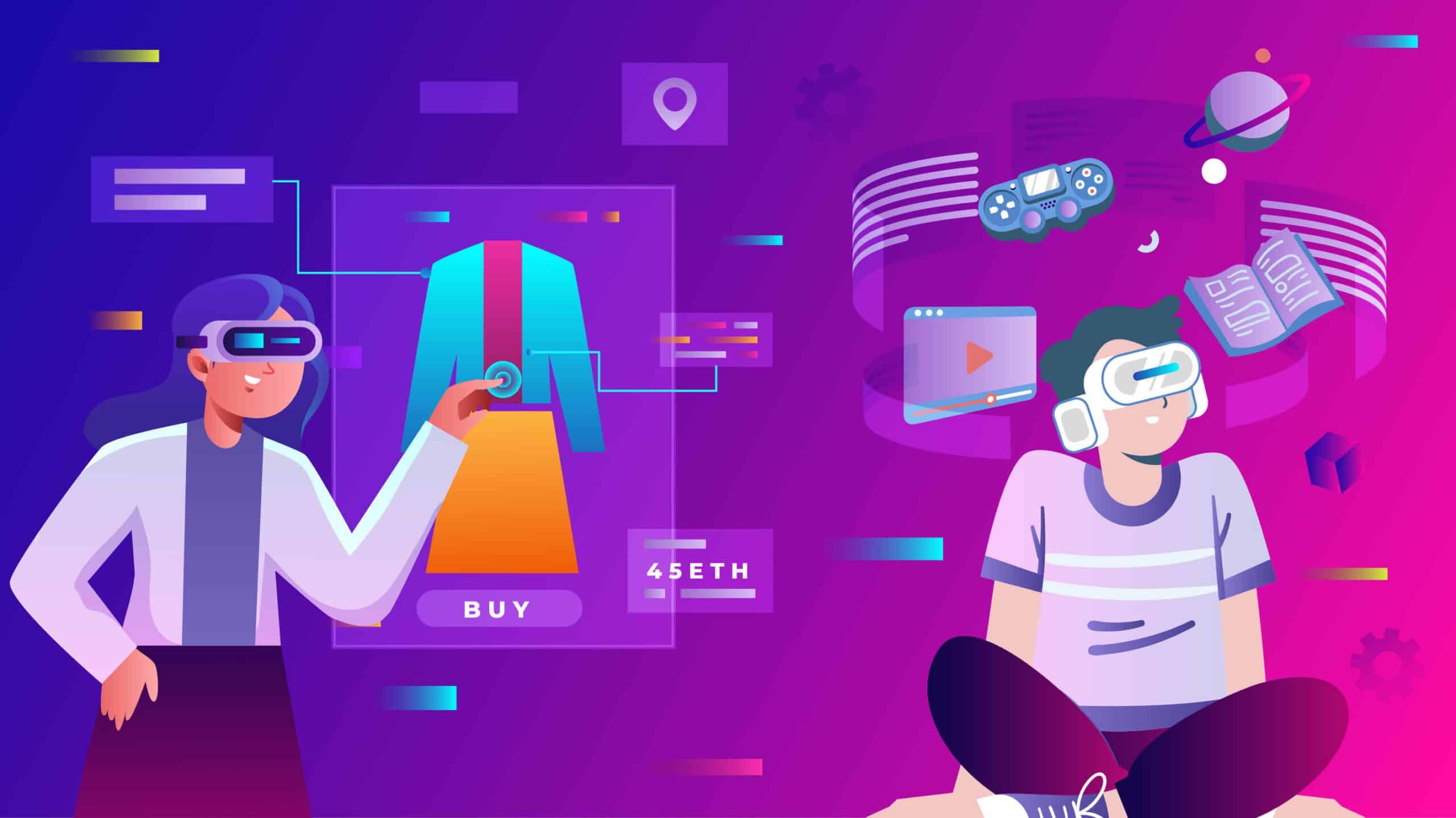Bringing the Metaverse to Life: Real-World Applications
The metaverse is shaking up the business world faster than anyone could have imagined. We’re seeing new ideas and projects popping up all over the place, linked to the metaverse. These things are changing how we think about sales, marketing, tech innovation, and how businesses work in general.
Just picture this: someone who’s really far away, right next to you on the couch, but they’re not really there – it’s their hologram self. You’re having a real conversation in real-time. Or think about browsing products in a store on the other side of the world. You can touch, feel, and try out stuff before you actually buy it.
The metaverse is like the future of human connections. It’s like the upgraded version of the internet and all those digital platforms we use. It’s making waves all over. People are even getting married in the metaverse. Big companies are throwing tons of money to be part of this new tech wave. And there are all sorts of new games, entertainment ideas, and gadgets coming out to support and get us excited about the metaverse.
It is therefore important to understand the real-world applications of the Metaverse in real life.
Metaverse Applications in the Real World
Real Estate and Property Tours
In the real estate industry, the metaverse is transforming property tours. Prospective buyers can now explore properties remotely, walking through virtual homes and getting a feel for spaces without physically being there. This technology not only saves time and travel expenses but also opens up possibilities for international buyers.
Virtual Workspaces and Collaboration
Remote work has become a norm, and the metaverse is taking it to the next level. Virtual workspaces allow teams to collaborate in immersive environments, making meetings and brainstorming sessions more engaging. This technology breaks down geographical barriers and encourages innovative teamwork.
Education and Learning
The metaverse is revolutionizing education by offering interactive and engaging learning experiences. Students can virtually explore historical events, travel to ancient civilizations, and visualize complex scientific concepts. This dynamic approach to learning enhances comprehension and retention.
Healthcare and Telemedicine
Metaverse applications are reshaping healthcare by enabling telemedicine in immersive settings. Patients can consult with doctors virtually, and medical professionals can practice procedures in realistic simulations. This technology is especially valuable in training and emergency scenarios.
Social Gatherings and Events
Virtual events in the metaverse provide unique opportunities for social interaction. From concerts and conferences to weddings and parties, individuals can attend and host events from the comfort of their homes. This inclusivity transcends physical limitations.
Art, Creativity, and Museums
Artists and creators are using the metaverse to exhibit their work in innovative ways. Virtual museums allow visitors to explore art collections from different eras and styles. This digital canvas also encourages new forms of artistic expression.
Shopping and E-Commerce
E-commerce platforms are integrating metaverse technologies to enhance the shopping experience. Customers can virtually try on clothing, test products in immersive settings, and explore virtual storefronts. This fusion of shopping and entertainment is redefining retail.
Sports and Fitness
The metaverse is transforming how we engage in sports and fitness activities. Virtual workouts, sports simulations, and even spectator experiences are becoming more interactive and engaging. This trend promotes healthy living in dynamic ways.
Travel and Exploration
Exploring the world is no longer limited by physical travel. The metaverse offers virtual tourism, allowing individuals to visit famous landmarks and destinations. This has implications for sustainable tourism and accessibility.
Environmental and Sustainability Initiatives
Metaverse applications are not just about entertainment—they can also promote environmental awareness. Virtual experiences can educate users about climate change and conservation efforts in immersive and impactful ways.
Personalized Entertainment
Entertainment in the metaverse goes beyond passive consumption. Users can participate in stories, games, and experiences, influencing the narrative and outcome. This level of engagement blurs the line between content creators and consumers.
The Evolution of Human Interaction
As the metaverse intertwines with real-world experiences, human interaction is evolving. Digital avatars and virtual identities are becoming extensions of ourselves, challenging conventional notions of communication and relationships.
Challenges and Considerations
While the metaverse offers immense potential, it also raises concerns. Privacy, security, and the digital divide are crucial factors that need addressing. Striking a balance between the virtual and physical worlds is another challenge that requires thoughtful navigation.
Conclusion
The metaverse’s integration into the real world marks a new era of interconnectedness and innovation. From education and healthcare to entertainment and sustainability, its applications are wide-ranging and transformative. As we move forward, embracing the metaverse responsibly and inclusively will shape how we live, work, and interact in unprecedented ways.

